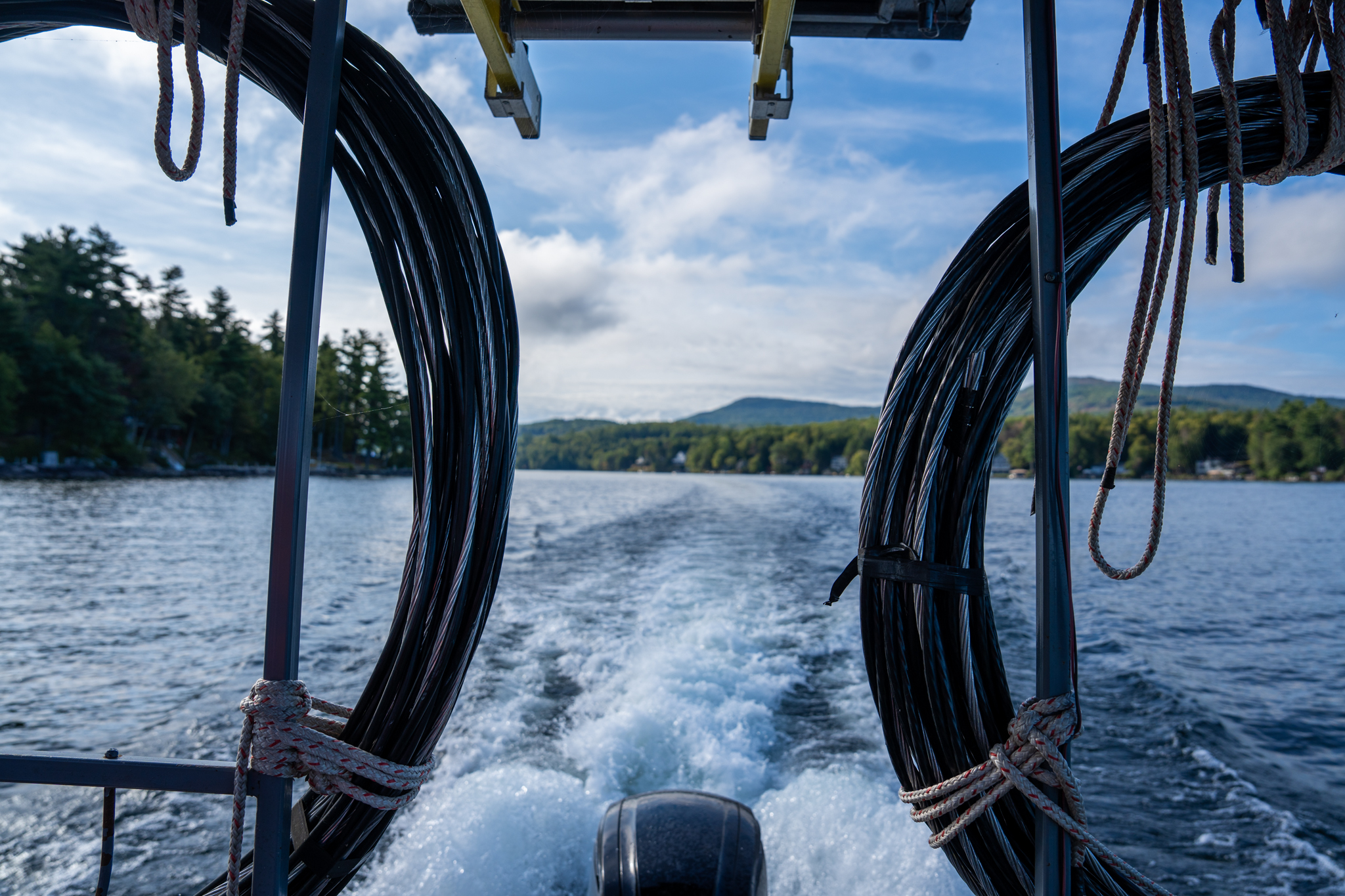For most, a trip to the islands on New Hampshire’s lakes is the perfect getaway. Not so for Co-op lineworkers.
We provide power to some of the most rural and hard-to-reach places in the state.
That translates to island work becoming its own specialty. Craggy and hilly terrain. An inability to access the utility lines with bucket trucks — the mainland’s mainstays — requires intense physical labor with a certain edge of gymnastic agility as climbing is the only way up. Not to mention navigating the weather-dependent lakes – Winnipesaukee and Squam – in pontoons.
Since the early 1960s, the Co-op, the only member-owned utility in New Hampshire, has been serving island members. Alton and Meredith districts perform the majority of island work, with the Plymouth district serving a small number of island homes. When our lineworkers are on the islands, they handle the same jobs as on the mainland – connections, maintenance and outage restorations — to keep the power on for more than 1,000 homes located on more than 50 different islands. They just plan and approach the tasks differently. Additionally, our Alton and Meredith districts have boats so the lineworkers in those districts are required to have commercial boat licenses.
“Weather is a big thing so trees usually cause a lot of damage out here,” said Nick Tarmey, a lineworker for the past 11 years in the Alton district, which serves the homes on Lake Winnipesaukee.
While Labor Day and Columbus Day holidays are generally the harbingers of the islands sleeping quietly until next season’s sun and swim, that’s when our lineworkers head out and get to work. Safety is paramount at the Co-op. There are certain times when our crews must wait until it is safe to traverse the ice or other impactful weather that could compromise their safety.
A straightforward day, like a recent trip to Sleeper Island on Lake Winnipesaukee, might include switching someone who is building a home from a temporary to permanent service. Downed utility poles, trees on a line or a transformer failure present greater logistical and travel challenges during winter season from breaking ice on the lake to being able to determine the best ways to access the lines on Rattlesnake Island, not to mention strenuous manual labor in rugged, wintery conditions.
“The island work has its challenges because we’re dealing with nature, whether it’s the existing terrain or increasingly changing weather,” said Joe DiPrizio, Operations Supervisor in the Alton District who started at the Co-op as a lineworker almost 20 years ago. “But the lineworkers consistently problem solve and find a way to work with the elements.”
